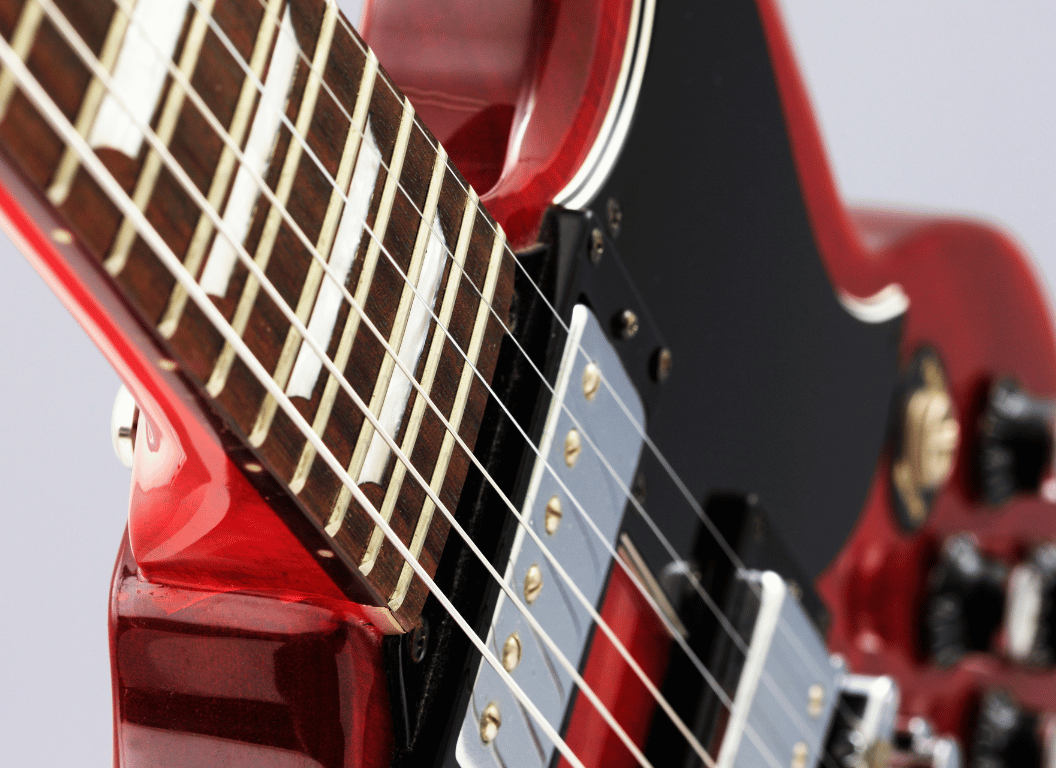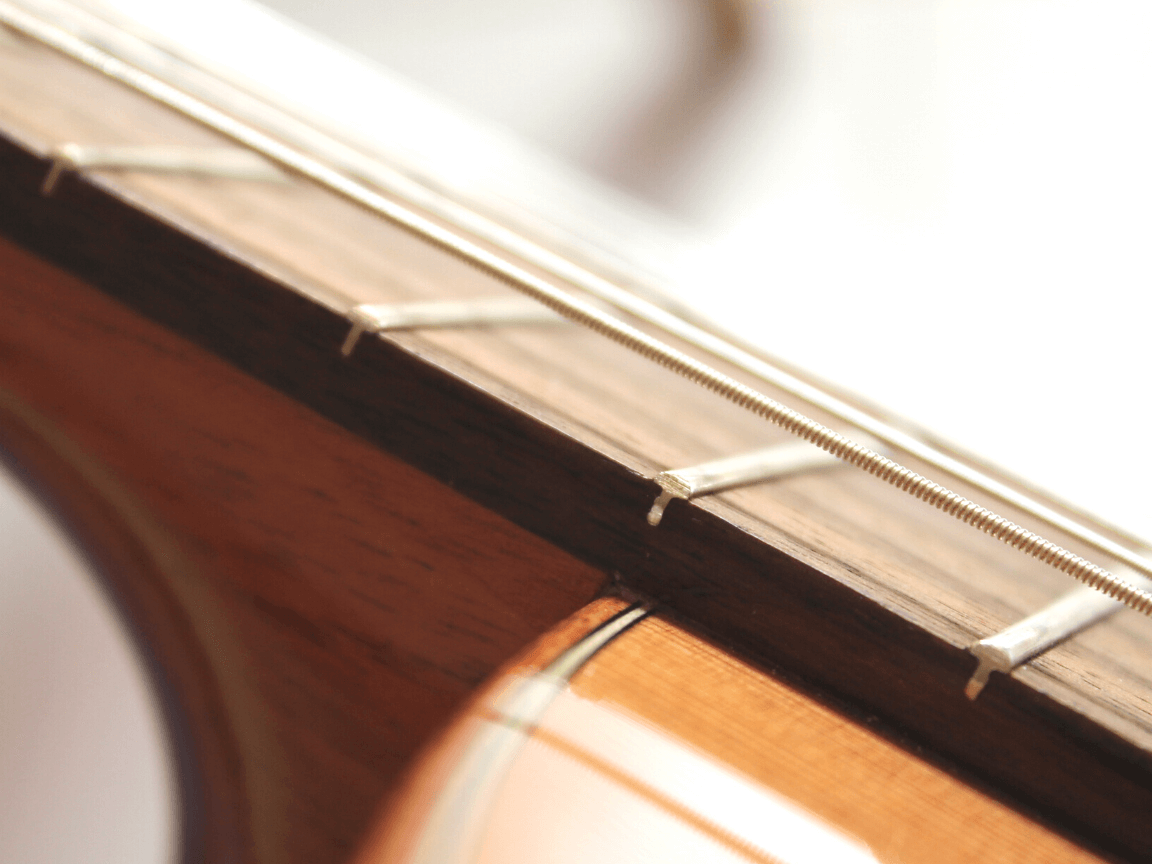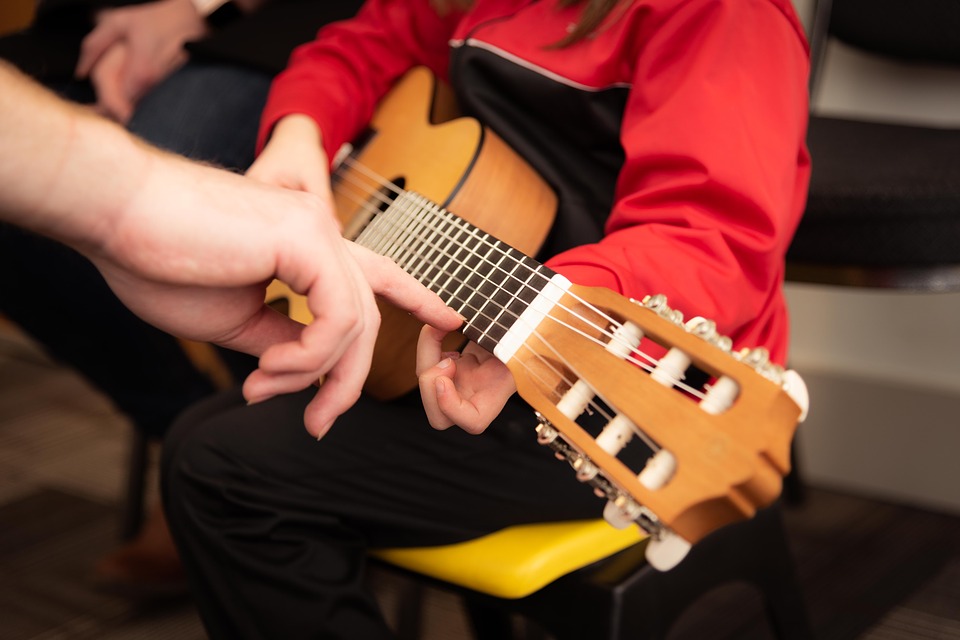It’s a commonly held belief that knowledge of scales is an absolute prerequisite for lead guitar players.
And while scales undoubtedly provide an essential roadmap for navigating your instrument, does their mastery truly separate the skilled from the unskilled?
Moreover, is it even possible to play lead guitar skillfully without being well-versed in them?
These are fundamental questions awaiting deliberation and examination, bound to challenge conventional wisdom.
We delve into this subject to uncover whether there’s a realistic pathway to proficiency without knowing your scales.
Our exploration may reveal a different perspective on the relationship between scales knowledge and lead guitar playing proficiency.
Table of Contents
- Can You Play Lead Guitar Without Knowing Scales?
- The Fundamental Role of Scales in Lead Guitar
- Can You Play Solos Without Knowing Scales?
- The Impact of Scales on Guitar Improvisation
- Key Differences Between Scale Knowledge and Guitar Skills
- Why Some Guitarists Skip Learning Scales
- Scale Knowledge vs. Learning Songs by Ear
- Do All The Greatest Guitarists Know Scales?
- How Would You Actually Improve if You Learned Scales?
- What Are The Limitations Of Not Knowing Scales?
- Is Your Style Influenced by Knowledge of Scales?
- The Bottom Line
Can You Play Lead Guitar Without Knowing Scales?
Yes, it is possible to play lead guitar without knowing scales, but it may limit your ability to understand and reproduce melodies, solos, or riffs accurately. Knowledge of scales provides a structural framework for understanding guitar improvisation and composition. Therefore, while not technically necessary, learning scales is strongly recommended to enhance your musical abilities on the lead guitar.
Expanding on the basic answer, it is also essential to delve into the nuance of using scales in lead guitar playing.
This includes the potential for creative expression, honing technical skills, and deepening music theory understanding.
The upcoming discussion will also illuminate how knowing scales can substantially heighten one’s dexterity, versatility, and adaptability in various musical genres.
Therefore, while you can strum the strings without scales, it’s interesting to explore how this knowledge opens up numerous possibilities, enhancing not just individual skill, but overall appreciation of the music landscape.
You may find these insights valuable whether you’re an aspiring lead guitar player, a seasoned musician, or someone simply intrigued by the world of guitars.
The Fundamental Role of Scales in Lead Guitar
Speaking in terms of music theory, scales are considered the backbone of most music genres, lead guitar playing being no exception.
These melodic sequences of notes, when mastered, can equip you with a comprehensive toolbox of harmonic knowledge and give your playing added sophistication and versatility.
By watching this video, you will be introduced to the five essential guitar scales.
It will assist you in understanding and memorizing these scales, thereby transforming your playing skills.
The Science of Scales
When viewed from a scale-oriented approach, each note functions as a potential root note for numerous scales, each having its own characteristic emotional appeal and melodic possibilities.
The more scales you are familiar with, the wider your palette of musical expression.
Understanding scales can help you to better recognize the structure of songs, making it easier for you to learn new material.
In understanding the tonal structure of different scales, you can begin to develop solos and melodies that are tonally harmonious with the song you are performing.
Furthermore, by utilizing scales, you can communicate effectively with other musicians, using the same musical language.
The more scales you are familiar with, the wider your palette of musical expression.
This means that possessing solid scale knowledge allows guitar players to express themselves musically with greater flexibility and creativity.
It also assists them in determining the musical direction and the emotional impact of their performance, providing a steady foundation upon which they can build.
Developing Fluidity and Speed
Learning scales also has a significant impact on your technical abilities as a guitarist.
With consistent practice, scales can help to improve your finger dexterity and agility, which enhances your playing speed and fluidity.
Scales provide a systematic way of exercising each hand’s motion, therefore strengthening your pick-hand and fret-hand coordination.
Practicing scales daily can also condition your fingers to move in sync with your brain’s commands, hence increasing your command over your instrument.
The repetitive nature of scale workouts also serves as excellent ear training, conditioning your brain to identify intervallic relationships between notes.
Learning scales also has a significant impact on your technical abilities as a guitarist.
Just like how a weightlifter lifts weights to strengthen their muscles, musicians practice scales to tone their musical muscles.
As a result, scales not only enhance your musical knowledge but also serve as a crucial element of technical development.
Can You Play Solos Without Knowing Scales?
The reality is, yes, it is technically possible to play solos without knowing scales.
However, being able to do so does not necessarily equate to doing it effectively or expressing your musical ideas to their fullest extent.
Scales form the foundation upon which solos are built.
They are the roadmap that guides guitarists in their improvisation, providing a safe framework in which they can experiment and express their musical ideas.
Without this foundational knowledge, soloing can easily become chaotic and unfocused.
Scales form the foundation upon which solos are built.
They are the roadmap that guides guitarists in their improvisation.
This quote illustrates that scales give structure to solos, creating a cohesive and meaningful musical progression.
Without this structure, there is a risk of producing disjoint sound sequences that lack fluidity and coherence.
Some guitarists do manage to play solos by relying on their ear, which is a testament to their auditory skills.
Still, this approach can be incredibly limiting and restrict the range of solos that a player is capable of performing.
Knowing scales, on the other hand, empowers guitarists to play in different keys, modalities, and styles, expanding their musical options significantly.
Knowing scales, empowers guitarists to play in different keys, modalities, and styles, expanding their musical options significantly.
This quote emphasizes the limitless opportunities that come with knowing scales.
The command of different scales allows a player to express diverse musical ideas, improving their capacity to communicate through music.
While it is true that there is a learning curve associated with mastering scales, the benefits significantly outweigh this initial investment of time and effort.
Understanding scales not only enhances a player’s ability to create powerful solos but also improves their understanding of music theory, contributing to a more holistic musical education.
Understanding scales improves a player’s understanding of music theory, contributing to a more holistic musical education.
As the previous statement suggests, scales play a crucial role in understanding music theory, and by extension, the language of music.
Hence, scales are not just merely a tool for creating solos but a fundamental mechanism for understanding and appreciating music in its entirety.
The Impact of Scales on Guitar Improvisation
Understanding the impact of scales on guitar improvisation entails acknowledging the foundational role scales play in musical self-expression.
In simple terms, scales provide the necessary vocabulary for a musician to engage with their instrument in an expressive way.
Unlocking Melodies
Scales give musicians the tools to unlock melodies within their minds and paint them into reality.
This creative potential is vividly showcased in improvisation, where the guitarist has the freedom to weave notes together to create a spontaneous composition.
Scales give musicians the tools to unlock melodies within their minds and paint them into reality.
Indeed, knowing the nuances of different scales allows for opportunities to experiment with various moods, tones, and atmospheres as dictated by the scale in use.
This newfound understanding can lead to improved musical versatility and the freedom to express artistic ideas.
The Backbone of Solos
Further, scales could be considered as the backbone of guitar solos.
A well-understood scale can provide a framework for guitarists, guiding them to hit notes that will harmonize together and create a compelling solo performance.
Well-understood scale can provide a framework for guitarists, guiding them to hit notes that will harmonize together
Without the knowledge of scales, a guitarist might find themselves lost in the musical landscape, resulting in less than satisfactory solo improvisations.
The understanding of scales can literally be the difference between hitting the right notes and missing them completely.
The Unspoken Language of Music
In essence, scales are like the unspoken language of music, and knowing them allows for better communication between musicians during a jam session or performance.
When every musician is aware of the scales being used, they can effectively synchronize their improvisation efforts, thereby achieving a unified and harmonious sound.
This can be particularly exhibition of team coordination, especially in larger bands or orchestras where smooth cooperation is critical.
Scales are like the unspoken language of music, and knowing them allows for better communication between musicians
By checking the following video, you’ll get a deeper understanding of how scales can be used to drive improvisation on the guitar.
It expounds on how various scales can transform your playing style, and help one in crafting unique solos.
Key Differences Between Scale Knowledge and Guitar Skills
Understanding the fundamentals of music, which include scales, is one aspect while guitar skills pertain to the specific techniques and abilities on the guitar itself.
Mastering scales enriches melody creation, as well as chordal understanding.
On the other hand, guitar skills involve mastery of picking techniques, finger coordination, and rhythm control, primarily the technicalities and physical aspect of playing.
Significance of Scale Knowledge
Scale knowledge is all about understanding the building blocks of music.
Scales give you a profound understanding of how music truly works.
Common scales like major, minor, pentatonic, and blues scales not only provide the very foundation of melodies but also offer structure to a song’s chord progressions.
Common scales like major, minor, pentatonic, and blues scales not only provide the very foundation of melodies but also offer structure to a song’s chord progressions.
A strong grasp of scales aids musicians to predict chord progressions, playing appropriate solos, and even coming up with their own songs.
Moreover, scales allow guitars to communicate effectively with other musicians using a common musical language.
The Role of Guitar Skills
On the contrary, guitar skills pertain primarily to the physical aspect of playing.
It involves smooth and accurate finger movements, managing the guitar pick appropriately, exact string pressing, and rhythm and tempo control.
These skills are attained and developed through years of consistent practice and commitment.
These skills are attained and developed through years of consistent practice and commitment.
Having a good guitar skill means being able to perform smoothly and accurately irrespective of the genre or complexity of the song being performed.
It enables the guitarist to play songs elegantly and effortlessly, even if it’s their first time playing those tunes.
The Interplay of Scale Knowledge and Guitar Skills
It’s crucial not to see scale knowledge and guitar skills as two separate entities.
Instead, these two aspects complement each other, making them equally significant in the journey of a guitarist.
Having a robust understanding of scales without proper guitar skills might lead to clumsy performances.
Conversely, having outstanding guitar skills but lacking scale knowledge might result in hollow and unstructured melodies.
Therefore, the harmonious blend of scale knowledge and guitar skills plays a fundamental role in the growth and maturity of a guitarist.
Why Some Guitarists Skip Learning Scales
One of the most common questions that pops up in the world of guitar playing is why some guitarists choose to skip learning scales.
This question is especially puzzling given the significant role that scales play in understanding and learning the instrument.
An understanding of scales can considerably improve a musician’s ability to improvise, compose, and understand music theory.
Yet, a number of guitarists, especially self-taught ones, tend to bypass this part of learning.
The Misconception About Scales
Often, guitarists skip learning scales due to the common misconception that scales limit creativity.
However, the opposite is true.
Scales offer a framework and vocabulary for expressing musical ideas.
In this video, you will discover how scales can actually enhance your ability to create compelling guitar solos.
With a well-rounded understanding of scales, you can better navigate your instrument as you improvise and compose.
Feeling Overwhelmed by Scales
Some guitarists avoid learning scales because they can feel overwhelming and complicated.
With so many different types of scales – major, minor, pentatonic, chromatic, and more, it is easy to understand why some guitarists might feel intimidated.
Learning scales may require patience and dedication, but the payoff in terms of improved musical skills can be immense.
This quote emphasises how the initial efforts in learning scales can result in a rewarding long-term payoff.
A meticulous comprehension of scales is not just about memorizing patterns, but about understanding the underlying logic of music.
No Immediate Payoff
One of the reasons that many guitarists skip learning scales is because there is no immediate payoff.
When a guitarist first starts learning scales, it is a slow process and does not instantly translate into being able to play a song or a riff.
It is important to remind oneself that while learning scales might not provide instant gratification, it promotes a deeper understanding of music and improves your ability to create intriguing melodies and solos.
Playing By Ear
Some guitarists manage to play by ear, mimicking what they hear in songs without understanding the theory behind it.
This skill can definitely be useful, but it can also limit the guitarist’s capacity to create original music or to adapt when playing with a band or in a live setting.
Without the knowledge of scales, guitarists may find themselves in musical situations that they are not prepared for.
Despite the initial hurdles and perceived limitations, learning scales is essential and beneficial for any serious guitarist.
With patient practice and perseverance, the studying of scales can open up a whole new world of musical possibilities and give you a solid foundation for your guitar playing.
Scale Knowledge vs. Learning Songs by Ear
To advance significantly as a guitarist, one must understand the crucial balance between learning scales and learning songs by ear.
While the two methods may seem polar opposites, they both contribute heavily to your guitar expertise and should therefore be integrated into your learning journey.
Understanding the Importance of Scales
Mastering scales elevate your playing technique, enabling you to understand musical concepts and patterns.
Incorporating scale knowledge helps boost musical vocabulary and phrasing in guitar solos.
They give a solid foundational knowledge of how notes work together, which in turn can help music composition and improvisation.
Mastering scales elevate your playing technique, enabling you to understand musical concepts and patterns.
This important aspect of scale knowledge means that your creative process is more spontaneous and confident, as you’re operating from a place of understanding, instead of guesswork.
Therefore, learning scales might seem like tedious work but the ultimate payoff in your skill level is worth it.
Lure of Learning by Ear
Learning by ear is a skill that many guitarists adore and swear by.
It promotes understanding music in an intimate and personal way, fostering emotional connections.
When you learn by ear, you’re developing your listening skills and also improving your timing and rhythm as you work to match the original.
Learning by ear is a skill that many guitarists adore and swear by.
This method can also help you develop your own unique style as you’re forced to interpret, and hence, innovate the music you’re listening to.
Furthermore, learning by ear provides a great tool when you want to play along with a band or an album. You can adapt quickly to any changes in the music.
Balancing Scales and Learning by Ear
Each approach has its unique allure and benefits, but relying solely on one can limit your growth as a guitarist.
Purely focusing on scales can turn your playing into a precise but emotionless exercise, while learning only by ear can result in a style that’s soulful, but technically limited.
Without the solid foundation that scales provide, you might find certain pieces of music, particularly complex solos, to be an insurmountable challenge.
Purely focusing on scales can turn your playing into a precise but emotionless exercise, while learning only by ear can result in a style that’s soulful, but technically limited.
On the other hand, without the emotional connection fostered by learning by ear, the guitar solos won’t convey the intended mood of the piece.
Therefore, achieving a balance between these two learning methods can help you in mastering the art of guitar playing, both technically and emotionally.
Do All The Greatest Guitarists Know Scales?
There is a common notion that all great guitarists must surely know their scales well.
However, this idea may not be entirely accurate.
A widespread belief among budding guitarists and other musicians is that knowing scales is a prerequisite to becoming a phenomenal guitarist.
While it is undeniably crucial to have a firm grounding in scales, not all renowned guitarists rely heavily on this knowledge.
Many accomplished guitarists are more intuitive in their approach and learn by feeding off the music they play.
Many accomplished guitarists are more intuitive in their approach and learn by feeding off the music they play.
This approach indicates a profound level of musicality in these guitarists.
They have developed their unique style not necessarily through theoretical knowledge but through years of active listening and practice.
Take, for instance, the late Kurt Cobain of Nirvana or Keith Richards of The Rolling Stones.
Cobain was notorious for openly talking about his lack of music theory knowledge, yet his music impacted millions and is still celebrated.
Cobain’s case reflects that knowing scales is certainly useful, but it is not a necessity to create meaningful and enduring music.
Richards, on the other hand, while the creative force behind one of the most legendary rock bands in history, seldom used scales in his signature open G tuning.
Richards, on the other hand, while the creative force behind one of the most legendary rock bands in history, seldom used scales in his signature open G tuning.
This divergent approach further underscores how tapping into one’s intuitive skills can sometimes outweigh theoretical knowledge, especially in music.
Therefore, it’s safe to say that not all the greatest guitarists necessarily know their scales.
While we’ve established that not all great guitarists know scales, it’s important to acknowledge the value of scales in learning music theory as well.
Scales serve as a system to organize pitches, and they provide a framework for melody and harmony.
Knowing scales can greatly enhance a guitarist’s ability to improvise and compose original music.
Plus, understanding scales also opens up a wide range of possibilities in terms of advanced techniques like modes, chord inversions, and arpeggios.
By watching the video linked above, you might deepen your understanding of scales and their application in guitar playing.
Additionally, the video might help you reframe your viewpoint about the role of scales in music creation.
While knowing scales can certainly benefit a guitarist’s craft, it is not a strict requirement for greatness.
Artistic intuition, coupled with consistent practice, can offer an alternative path to greatness as shown by several legendary guitarists.
How Would You Actually Improve if You Learned Scales?
Learning scales on the guitar can be likened to learning a new language.
This is because, by gaining insights into scales, one essentially learns the musical language.
Every melody or chord in your favorite songs can be traced back to a specific scale.
This means that by learning scales, you gain the ability to understand how melodies and chords are assembled, facilitating your ability to play them.
Understanding this musical language opens doors to improvisation and composition, making it easier for you to put your own spin on songs or even create your own.
These are critical aspects of playing the guitar that are made significantly easier by understanding scales.
Improvising and composing might seem complex without knowledge about scales, but learning them simplifies these processes drastically.
When you systematically learn various scales, your guitar techniques and hand coordination also improve.
Scales require you to move your fingers swiftly and accurately across the fretboard.
With regular practice, this increases your speed, precision, and finger dexterity.
This, in turn, can enhance your playing fluidity and overall expressiveness on the guitar.
Practicing scales is often a surefire way to get your fingers moving along the fretboard smoothly and confidently
These physical improvements can be clearly observed as one continues to practice scales.
This is another area where learning scales can affect your growth as a guitarist positively.
Many novice guitarists underestimate the importance of aural skills, but they are actually vital.
Aural skills refer to the ability to identify different notes, chords, and rhythmic patterns by ear.
When you learn and practice various scales, you simultaneously work on improving your aural skills.
The ability to recognize and differentiate between different pitches and tones gives guitarists an edge.
It makes it much easier to play by ear, reproduce melodies, or jam along with other musicians.
This is yet another significant improvement that scales bring about in you as a guitarist.
By reinforcing your ability to listen for pitch and tone variation, scales help in developing a well-tuned musical ear.
What Are The Limitations Of Not Knowing Scales?
When a guitarist doesn’t understand scales, their ability to communicate musically is significantly curtailed.
It’s like trying to write a novel without a good understanding of vocabulary and sentence structure.
Without scales, you limit your ability to express complex feelings and ideas through music.
The inability to use scales significantly impacts a guitarist’s improvisation abilities.
You might have noticed that guitarists who don’t understand scales often repeat the same licks when they freestyle.
They also tend to get stuck in one area of the fretboard since they do not know how to move smoothly along the scale patterns.
Practiced scale patterns allow for fluid movement across the neck of the guitar.
The resultant music sounds restricted, lacking the dynamism and versatility achieved with scale use.
Practiced scale patterns allow for fluid movement across the neck of the guitar.
This point is crucial for budding guitarists to understand, as it directly impacts the quality of their improvisation.
Winging it might work occasionally, but it is not a solid strategy for consistent, quality music creation.
Further, not knowing scales diminishes a guitarist’s melodic and harmonic understanding.
Scales are the basis for melodies, chord progressions, and harmony in music.
Without a solid grasp of scales, your comprehension and application of these concepts are limited.
As a result, your creativity as a musician could be severely hampered.
You may gain further insight into this limitation and how to overcome it by watching the attached video.
This instructional video offers practical steps for better understanding scaling and order to enhance your guitar solos.
Not knowing scales can lead to a narrow musical perspective.
Guitarists who skip learning scales often miss out on the broader array of musical possibilities that scales offer.
It’s like looking through a tunnel – you only see a small portion of what’s out there.
Beyond merely playing established tunes, knowing scales opens up the guitarists to inventing their own melodies and variations on recurring themes.
Why should anyone limit their musical capabilities when so much more is possible?
Not knowing scales can lead to a narrow musical perspective.
Having a narrow musical viewpoint restricts your ability to innovate on your instrument.
Learning scales broadens your melodic palette, allowing you to explore new patterns and chord voicings that you may never have discovered otherwise.
Is Your Style Influenced by Knowledge of Scales?
When diving into the multifaceted world of guitar playing, one may wonder how knowledge of scales can influence their own unique style.
This thought is valid given the myriad of factors that shape each musician’s sound; from the type of guitar they use to the music they grow up listening to.
However, understanding and mastering scales is a fundamental pillar that greatly shapes the music one creates.
A musician’s skill in interpreting emotion often centers around their ability to use scales effectively.
Each scale, whether major, minor, or hybrid, has a distinct “mood” that it imparts to a piece of music.
This musical “mood” or tone is a direct consequence of the specific intervals and sequence of notes in each scale.
This understanding lets musicians manipulate their compositions to convey the raw emotion they wish to impart.
A thorough knowledge of scales is crucial for musicians to explore new musical terrains.
Adaptability and diversity are key in music, and nothing provides a wider array of options better than a deep understanding of scales.
Mastering various scales allows for smooth key changes, unexpected melodic twists, and can inspire improvisations.
This offers a sense of musical adventure while maintaining a strong technical foundation that resonates with listeners.
Improvisational skills are significantly enhanced by a guitarist’s knowledge of scales.
Knowledge of scales fosters a guitarist’s ability to improvise more effectively.
It allows them to transform their intimate emotional experiences into a palpable aural journey for their listeners.
This is one of the major reasons why scales have remained a foundational part of music education across eras and genres.
It’s worth noting that the extent to which scales influence your style is ultimately subjective and depends on how you choose to incorporate them into your playing.
There are no hard and fast rules about how scales should be used, and that’s the beauty of music.
As a guitarist, you have the freedom to use scales as a base from which you express your personal style and aesthetic.
The choice, expression, and manipulation of scales can be a form of personal expression that separates you from other guitarists.
In the end, scales are simply another tool in your musical toolbox, and how you choose to use them can make all the difference in your unique sound.
The Bottom Line
Srasp of scales undeniably plays a pivotal role in the development of a guitarist, particularly in lead guitar and improvisation.
While it is technically possible to play solos without scales, deeper understanding and fluency in scales can open up expressive options, enrich musical intuition, and expand stylistic capacities.
While some virtuosi seem to skip formal scale studies, they often compensate with intense aural exercises, instinctive understanding, or non-standard approaches.
The debate between rote learning of scales and songs mirrors the tussle between theory and ear training, revealing different aspects of one’s musical education.
However, a comprehensive guitar education should ideally be a healthy blend of both.
Overlooking scales can lead to limitations in versatility and creative potential.
Thus, knowledge of scales can certainly steer your style, evoke inspiration, and boost your growth as a guitarist.

An avid storyteller and music lover that devotes all his free time to mastering the art of playing guitar. I’ve played acoustic for 6 years, and recently started playing electric guitars. Currently playing an Epiphone SG Special!




